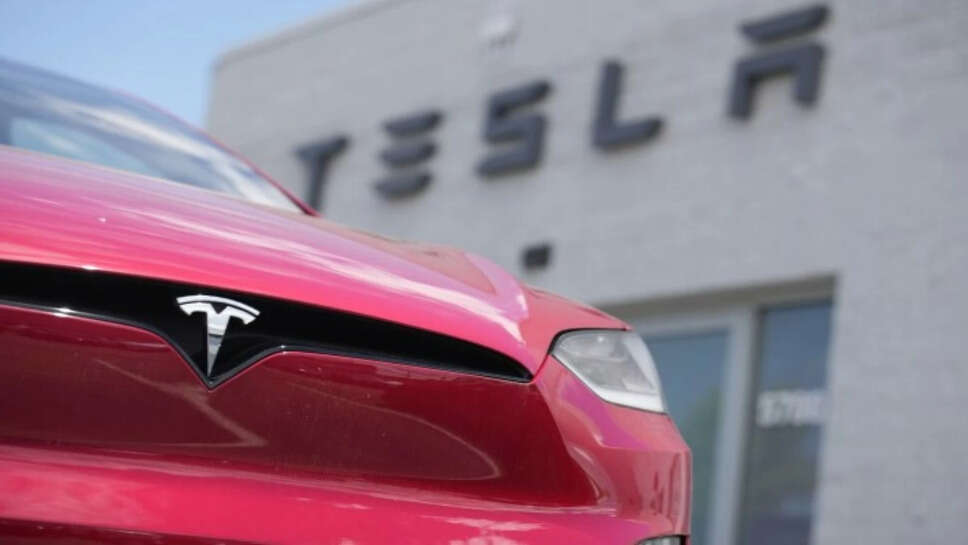Autopilot in the Dock: Jury Finds Tesla Liable in $240M Crash Case

In a seismic legal blow to Tesla and its autonomous driving ambitions, a U.S. jury has ordered the electric vehicle giant to pay more than $240 million in damages over a fatal crash involving its Autopilot system. The decision marks one of the largest verdicts against the company and could have long-reaching implications for the future of driver-assistance technology, product liability, and corporate accountability in the self-driving car industry.
The case, closely watched by legal experts, regulators, and tech companies alike, centered around a tragic accident in which a Tesla vehicle operating on Autopilot mode crashed at high speed, leading to serious injury and loss. The jury found that Tesla's software was defective, failed to perform as advertised, and that the company bore responsibility for the crash due to negligence and misleading marketing.
The Case That Rocked Tesla
At the heart of the case was a fatal accident involving a Model S sedan driven by a man who had reportedly activated the Autopilot feature during a routine highway drive. According to plaintiff attorneys, the vehicle failed to detect a highway barrier and swerved directly into it at full speed, despite the driver’s hands being on the wheel and following Tesla’s usage instructions.
The jury, after deliberations, determined that the system malfunctioned due to design flaws in Tesla’s semi-autonomous software. More critically, the court found that Tesla had overstated the capabilities of Autopilot in its public statements and marketing materials, giving users a false sense of safety.
"This case is not just about one crash. It's about the trust we place in technology and the responsibility companies have when human lives are on the line," said one of the plaintiff's lawyers during closing arguments.
What the Jury Said
The jury awarded a total of $244.7 million, broken down into:
-
$80 million in compensatory damages for medical bills, lost wages, and emotional distress.
-
$160 million in punitive damages meant to send a message about Tesla's accountability.
-
The rest for miscellaneous claims and legal costs.
The panel concluded that Tesla’s Autopilot system was defective in both design and implementation, and that the company failed to provide adequate warnings about its limitations.
This isn’t the first time Tesla has been in court over Autopilot-related crashes, but it is by far the most costly verdict to date and is likely to spark a fresh wave of lawsuits and scrutiny.
Tesla’s Defense Falls Short
Tesla’s legal team argued that the driver had misused the Autopilot system and that it was never intended to be fully autonomous. They reiterated that the system is a driver-assistance feature, and drivers are explicitly told to remain alert and keep their hands on the wheel at all times.
However, the prosecution countered with video evidence, internal emails, and expert testimonies suggesting Tesla knew of critical flaws in the software but failed to act swiftly or transparently. They also played clips from Tesla’s promotional videos that touted Autopilot’s hands-free capabilities, some of which are now under investigation for being misleading.
Implications for the Autonomous Vehicle Industry
This verdict may set a powerful legal precedent. For companies developing autonomous technologies, the line between driver-assistance and full autonomy is a legal tightrope. The Tesla case throws that distinction into sharp relief—showing that courts are willing to hold tech companies accountable for how their systems perform in real-world conditions, not just how they are described in fine print.
Experts say this decision could influence:
-
Federal regulations on how self-driving technology is tested and marketed.
-
Insurance and liability standards in cases involving AI-driven features.
-
The pace of innovation, as companies might now proceed more cautiously to avoid similar fallout.
Public Perception and Market Reaction
Following the verdict, Tesla’s stock dropped by over 6% in after-hours trading as investors reacted to concerns over legal liability, increased regulatory pressure, and reputational damage.
Social media was quick to pick up on the ruling, with users debating whether Tesla had overpromised and underdelivered on its autonomous driving vision. Many pointed out Elon Musk’s long-standing claims that full self-driving (FSD) would soon be a reality, despite repeated delays and technical setbacks.
Critics of Tesla have long accused the company of using the term “Autopilot” in a misleading manner, suggesting a level of vehicle autonomy that doesn't exist.
Tesla’s Next Steps
Tesla has announced plans to appeal the verdict, stating that the jury failed to fully understand the technical complexities of the system and that the evidence presented was incomplete.
In a brief public statement, the company said: “While we empathize with the victim’s family, Tesla remains confident in the safety of Autopilot when used properly. We will vigorously pursue an appeal.”
Whether Tesla can overturn the verdict on appeal remains uncertain. Legal analysts believe the company faces an uphill battle, especially given the strength of the evidence and the growing concern over AI accountability.
A Moment of Reckoning
The case represents a watershed moment not just for Tesla, but for the entire automotive industry. As carmakers race to develop next-generation autonomous systems, they must now reckon with the fact that software glitches and system miscommunications can carry not just tragic human costs, but staggering financial ones as well.
It also reignites the broader debate: Should machines be held to a higher standard when human lives are at stake? Can we trust algorithms to make split-second decisions with the same nuance and caution as trained drivers?
As the world watches Tesla’s next move, one thing is clear: the age of unregulated, experimental Autopilot features may soon be coming to an end. And in its place, a new era of legal accountability and consumer safety expectations may just be beginning.
.jpg)